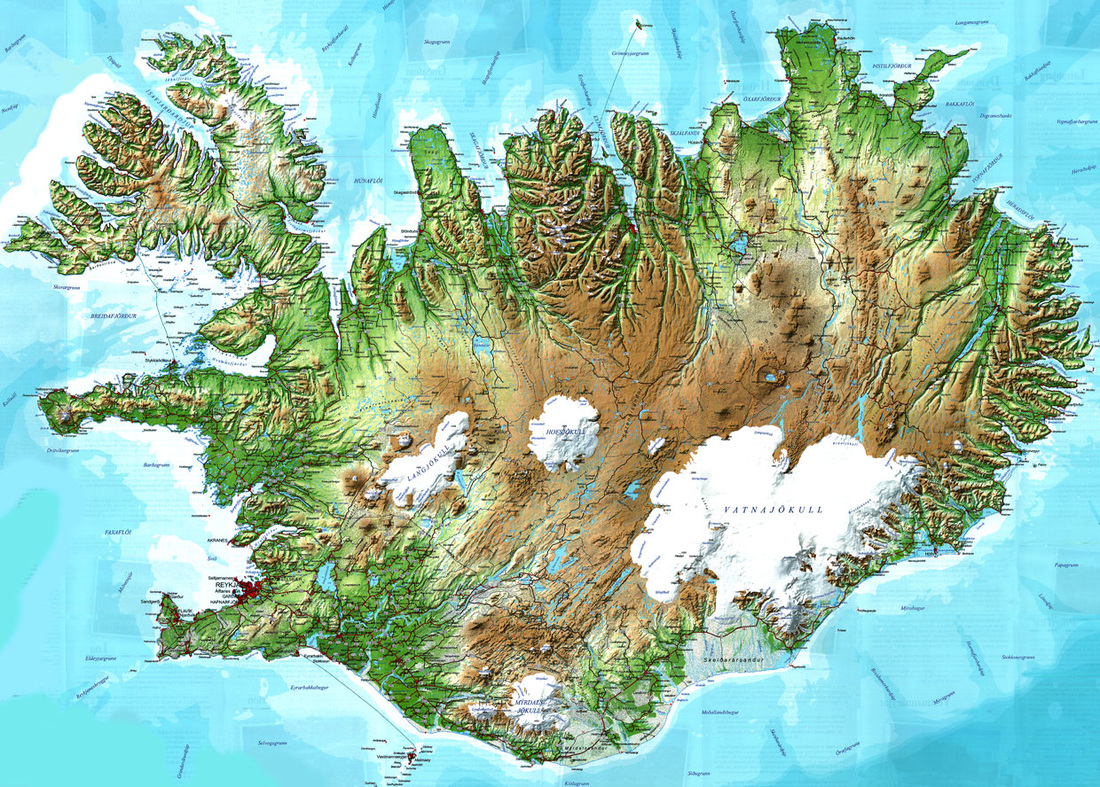Government: Iceland is a parliamentary constitutional republic. Suffrage is universal from 18 years of age. The president is elected by direct popular vote for a term of four years, with no term limit. Most executive power rests with the Government, which is elected separately from the presidential elections every four years. Althingi is a legislative body of 63 members elected for a term of four years by popular vote. Judicial power lies with the Supreme Court and the district courts.
Language: The official language of Iceland is Icelandic, a North Germanic language derived from Old Norse. It has changed relatively little throughout the centuries. English is widely spoken and understood. Quite a few Icelanders speak Scandinavian and German as well. Icelandic is the cornerstone of Icelandic culture, which has spawned a literary tradition that dates back to the ancient Icelandic Sagas. Violent tales of blood feuds, traditions, family and character. A strong literary tradition still thrives in modern Iceland. and Icelandic authors publish more books per capita than in any other country in the world. Religion: Most Icelanders (80%) are members of the Lutheran State Church. Another 5% are registered in other Christian denominations, including the Free Church of Iceland and the Roman Catholic Church. Almost 5% of people practice Ásatrú, the traditional Norse religion. Economy: GDP = $14,5 billion. Unemployment rate: 5%. Currency: The Icelandic monetary unit is the króna (plural krónur) – ISK. Time: Iceland is on Greenwich Mean Time (GMT) throughout the year, and does not go on daylight saving time. People and society: Iceland was the last country to be settled in Europe, when emigrants from Scandinavia and the British Isles first came to live on the island in the ninth and tenth century. It remains the most sparsely populated country in the continent with less than three inhabitants per square kilometer. Shaped by the unrelenting forces of nature, Iceland’s harsh natural environment has bred a resilient nation that has learnt to exist under extreme conditions, and harness the natural resources they create for its own prosperity. Today, Iceland is a progressive, modern society that continuously ranks at the top of measurement's for quality of life, such as the United Nations Human Development Index. Its economy is one of the most productive economies in the world, per-capita, and it is annually considered to be one of greenest countries on the planet, due in large parts to its vast renewable energy resources. Arts & Culture:Iceland’s unique nature, closely-knit population, and enterprising spirit have all contributed to a dynamic, original cultural scene. From the ancient sagas to award-winning films, Icelanders are a generally writing, acting, composing, designing, painting, sculpting, and all-round creating bunch. Many locals have “creative” professions and of those who don’t, many sing in a choir, play an instrument, write poetry, design clothing, knit, or have another vent for their creative energy. Famous last words: When you live in a country which moves alarmingly under your feet every five years or so with an earthquake or a volcanic eruption, you face, like the saga heroes of old, a choice of two courses of action, neither of them good: Either to flee the country and all its hazards, or to stay and brave them out. For more than 1100 years the people of Iceland have chosen to stay and brave them out. Television presenter Magnús Magnússon, Reykjavík, September 2001 Source: The official Gateway to Iceland
0 Comments
Leave a Reply. |
AuthorExploring Iceland blog has several authors. Categories
All
|
Our Tours |
Exploring IcelandOpening Hours
Monday - Friday 9 – 17 24 hours emergency phone number: +354-898-8903 |
© COPYRIGHT 2015. ALL RIGHTS RESERVED.
|


 RSS Feed
RSS Feed


